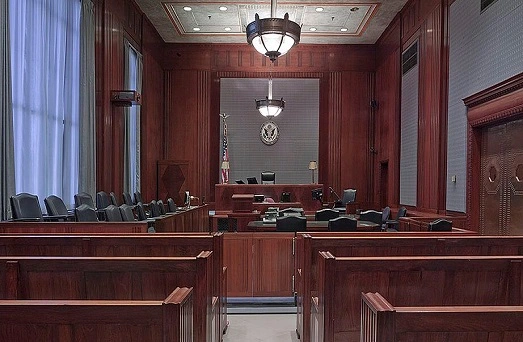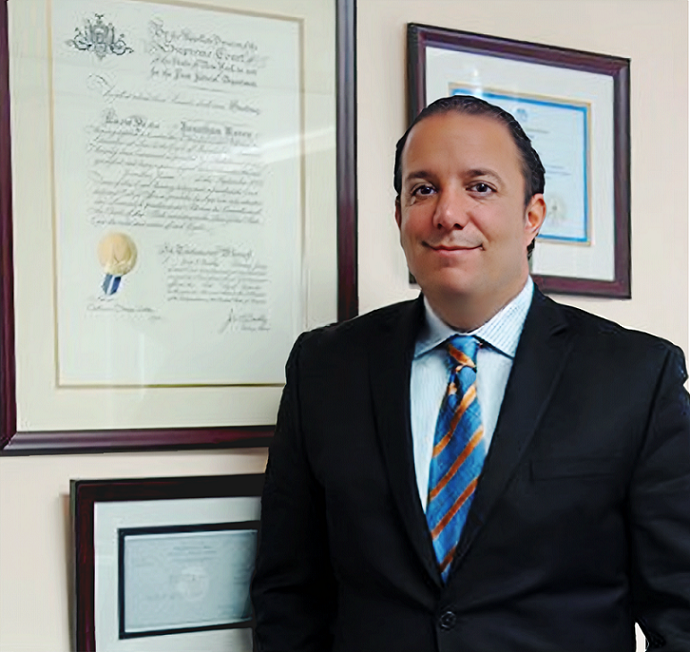Our Innovative Legal Solutions
Mortgage Modifications and Distressed Real Estate Solutions

The Comprehensive Top-Down Approach
We resolve delinquent mortgages by reducing, extending, or restructuring mortgage terms to affordable payments for our clients. Mortgage modifications are negotiated resolutions to assist a borrower to avoid foreclosure or imminent delinquency through specific retention options. A borrower can be current but imminently about to fall behind, in significant delinquency, or in foreclosure proceedings. Mortgage modifications specifically work to restructure mortgages by capitalizing mortgage arrears and reducing monthly mortgage payments to the affordability level of the borrower.
To calculate a borrower's affordability level, most banks will measure a borrower’s financial profile against a matrix of guidelines, including the debt-to-income (DTI) ratio, mortgage payment-to-income ratio, and income-expense relationship. Banks will use these financial ratios along with a recent property value to arrive at a mathematical yes or no based on a Net-Present Value (NPV) determination. Most banks are loan servicers that service loans for different investors. Many of the investor guidelines to qualify for a loan modification are similar with several distinct differences. For example, among other guidelines, a Fannie-Mae or Freddie-Mac investor backed loan utilizes an 80-percent cap on the loan-to-value ratio to qualify for a discounted modified rate, whereas an FHA-insured loan requires a surplus of at least 15% of a mortgagor's monthly net income. Other private investors share similar guidelines with small distinctions, so a full financial analysis is required to see where a borrower is or may be positioned within these guidelines.
If a borrower does not meet a specific investor guideline does not mean the borrower is automatically barred from achieving a mortgage modification resolution. With other mitigating factors, investor exceptions can be requested and fought for. Some cases require the appeal of the denial and escalation to the investor for exception approval. The law firm has achieved modification resolutions with significant principal reductions for borrowers who would not normally qualify under conventional guidelines. Conversely, even if a borrower does meet investor guidelines does not automatically mean the servicing bank will readily provide a modification. A borrower can receive a modification denial due to a loan servicer error made in underwriting such as miscalculated income or expense, incorrect appraisal value assessment, the inability of the loan servicer to use certain income as qualifying income, or the inability to create a lower modified payment. If a borrower receives a loan modification denial or denials, we can appeal the denial(s) with supporting evidence showing the borrower's financial conformity with investor guidelines.
While modifications and other negotiated resolutions are within the lender's discretion, and while lenders can make these negotiations difficult and overly complicated, our modification attorneys and staff have successfully obtained helpful modifications for a high percentage of our New York clients. Based on our experience, innovative approach, and reputation, we resolve these modification hurdles, and our experienced staff takes on the most challenging cases.
Other distressed real estate solutions resolutions that we have achieved outside of loan modifications and litigation settlements are short payoffs where we settle the mortgage at a discounted principal balance, mortgage arrear settlements, and in some unique cases an entire mortgage forgiveness.
So call our office today at
718-819-1674 for a free consultation so that we can review and explain the merits of your case and develop a strategic plan specific to your needs and situation.
Read More ...
Foreclosure Representation

Assert All Your Technical and Substantive Legal Defenses
We are New York's premier foreclosure defense law firm and concentrate in foreclosure solutions with customized, innovative arguments that we position into every legal paper, including pleadings, discovery, conferences, oppositions, motions, and cross-motions filed to protect our clients' homes. Responding to legal papers timely is important to avoid default and protect a homeowner's legal position. Even if a homeowner fails to answer the lawsuit, under the right circumstance we may be able to vacate this default with an reasonable excuse for the default and a meritorious defense.
Once a client is served with a foreclosure complaint, we respond by answer, counterclaims, and/or motions to dismiss, all in accordance with our clients' specific situation. We attend all court conferences including settlement conferences, status conferences, and more recently Covid Hardship conferences to defend our client's legal rights. During the conferences we pursue settlement and modification resolutions. We proactively defend the lawsuit by filing comprehensive and thoroughly researched oppositions and cross-motions to the following banks' motions: motion to appoint a referee, motion for summary judgment, motion for judgment of foreclosure and sale. We also preemptively file our own motions for our clients including: motions to reargue, renew, vacate a default, to dismiss the lawsuit, and/or seeking judicial intervention, certain reliefs and sanctions for Plaintiff's exhibited bad faith during negotiations (see CPLR 3408[f]). We can also initiate our own actions or motions for quiet title, to vacate a judgment, order, or a mortgage lien. Emergency motions known as orders to show cause can stop foreclosure sales, vacate wrongful judgement/orders, or potentially dismiss foreclosure actions, based on defects with banks' standing, chain of title, jurisdiction, failure to properly serve a 90-day notice, statute of limitations, failure to possess loan documents, and other meritorious defenses including predatory lending, fraud and misrepresentation. To the extent any Court decision can be disputed, we can move to reargue, renew or vacate the prior Court's decision/order and/or engage in an appeal of the decision to the Appellate Division where the conclusions of law of the lower court will be reviewed by the appellate court.
We specialize in litigating foreclosure matters that most law firms are not well versed in: those matters that have complex fact patterns, challenging legal issues, and convoluted case histories. We pride ourselves in taking on, turning around, and resolving litigation matters that have previously had long delays, setbacks, and circular patterns by introducing an innovative and creative approach that looks for legal holes in the banks' documentation and case histories to assert strong, unique legal arguments for our clients. Foreclosure defense by our attorneys gains time and leverage for homeowners seeking modifications and other mortgage solutions. We are unique in not just engaging in complex and nuanced foreclosure defense but also in potentially introducing negotiation, modification and other resolution options during this time of litigation to help our clients keep their homes.
Call our office today at
718-819-1674 for a free consultation and case evaluation to receive a comprehensive list of legal tools that we can exercise to protect your home in accordance with your case's fact pattern.
Read More ...
Debt Settlement and Debt Litigation

Eliminate Debt and Protect Your Financial Integrity
The firm believes that most debt problems can be resolved without a bankruptcy petition by directly negotiating with the creditor or creditor's attorney. The law firm has successfully negotiated thousands of settlements for credit cards, personal loans, business loans, and other installment loans. The firm also vacated many default creditor judgments due to improper service, and meritorious defenses such as a creditor's lack of standing, incomplete chain of title, doctrine of unclean hands, unconscionable collection practices, defective Note, and various violations of the Fair Debt Collection Practices Act.
Most creditor lending models factor in a default rate. If a debtor defaults and continues to grow delinquent, the probability of a creditor receiving payment diminishes, and most significantly delinquent accounts will be dispatched or sold to collection agencies, law firms, or debt buyers at a discount. When a debt is not secured against collateral such as a house or equipment, the debt is known as unsecured debt, and the only method of forced collection is by lawsuit and judgment. Creditors will often weigh the decision regarding the collectability of the debt: for example, if a creditor pursues litigation and judgment against a debtor, potentially costing the creditor thousands of dollars, what is the likelihood of collecting the full post-judgment debt balance versus settling today and receiving an assured percentage return on the principal balance and a tax write-off for the difference not received.
If you fall behind on creditor payments and find your debt to be unmanageable, settling directly with your creditors can be an effective solution. To respond timely to creditor delinquencies is crucial to avoid debt assignment to collection companies and potential lawsuits. Call us today at
718-819-1674 for a free consultation and debt settlement evaluation tailored to your unique situation, employment, and asset structure.




